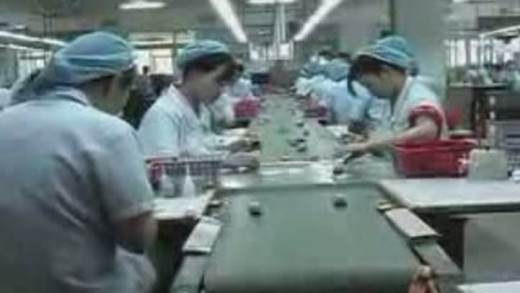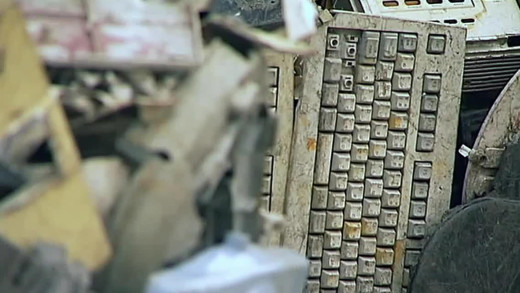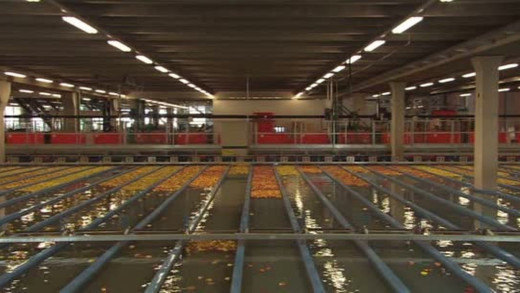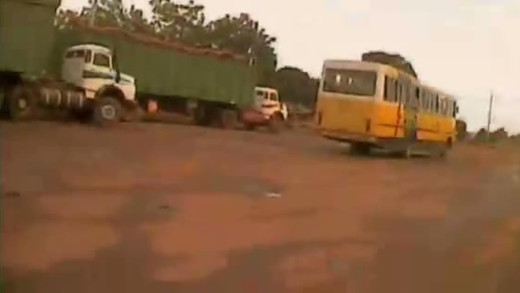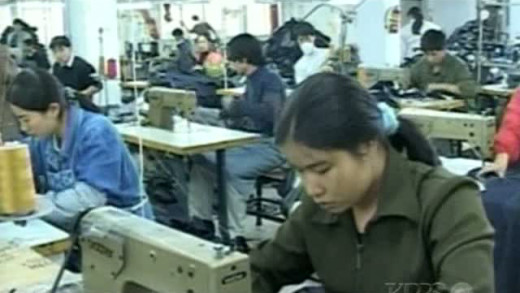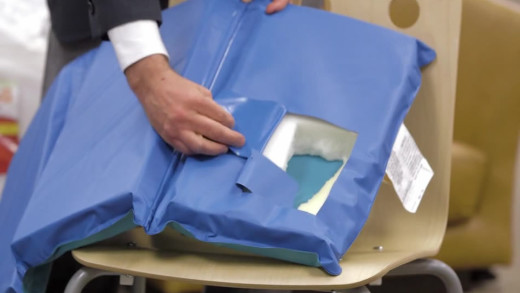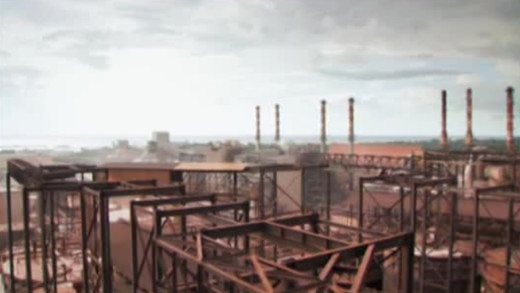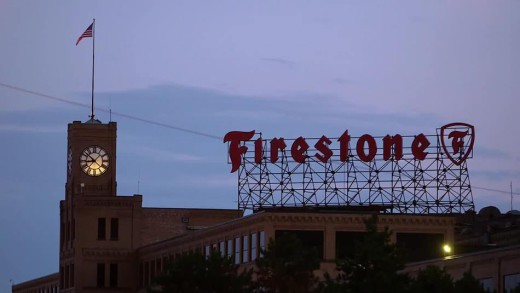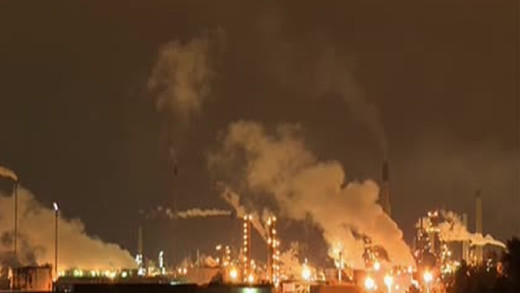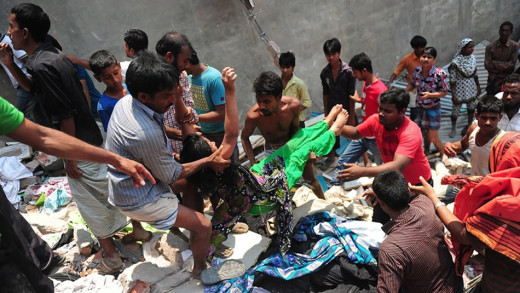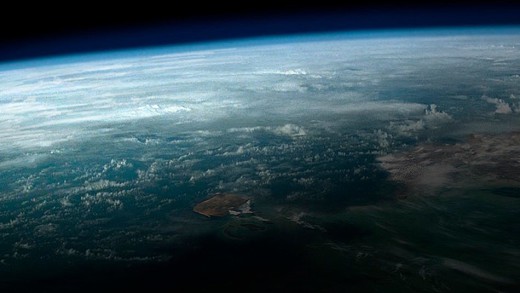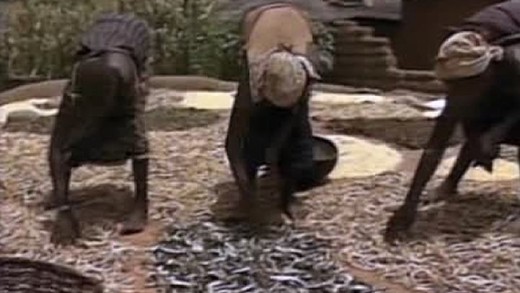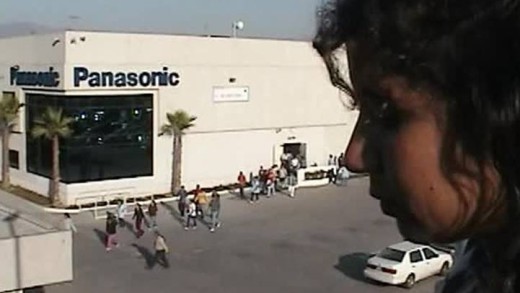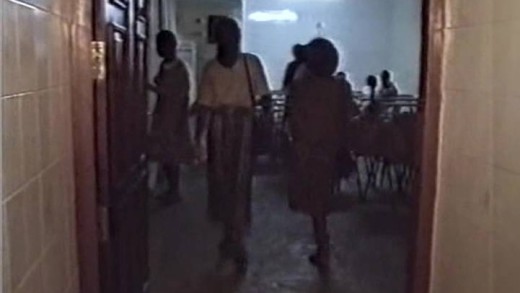Santa's Workshop -- Inside China's Slave Labour Toy Factories shows the long working hours, low wages, and the dangerous work and conditions inside these toy factories. Workers who protest or try to organise unions risk imprisonment. Low labour costs and government protections for multinational corporations attract more and more companies to China. Figureheads blame the Chinese suppliers, but they say in the same sentence that increasing competition gives them no option. What and whom to believe?
Did you know that the legal system recognises a corporation as a person? What kind of 'person' is it then? What would happen if it sat down with a psychologist to discuss its behaviour and attitude towards society and the environment? Explored through specific examples, this film shows how and why the modern-day corporation has rapaciously pressed itself into the dominant institution of our time, posing big questions about what must be done if we want a equitable and sustainable world. What must we do when corporations are psychopaths?
China's factories provide low cost products such as computers and cars to the rest of the world, but the real cost is high with heavy air pollution, contaminated waterways, decimated land, terrible working conditions, widespread cancer and incidences of deaths. China's Dirty Secrets travels across the country to follow workers at factories that assemble computers, then to e-waste dumps, and finally an industrial incinerator burning medical waste, all showing first-hand the extensive environmental impacts of so-called "economic growth."
The myths of globalisation have been incorporated into much of our everyday language. "Thinking globally" and "the global economy" are part of a jargon that assumes we are all part of one big global village, where national borders and national identities no longer matter. But what is globalisation? And where is this global village? In some respects you are already living in it. The clothes in your local store were probably stitched together in the factories of Asia. Much of the food in your local supermarket will have been grown in Africa...
Welcome to the world of industrial food production and high-tech factory farming. Set to the pace of conveyor belts, immense machines, surreal landscapes and bizarre sounds, Our Daily Bread takes an inside look at the industrial environment that mass-produces today's food. Made entirely of visuals, without commentary, this film provides a raw view of the strange realities of industrial food production, which isn't always easy to digest...
The Dark Side Of Chocolate follows a team of investigative reporters into Africa where human trafficking and child labour fuel the chocolate industry worldwide. The film travels to Mali where hidden footage reveals the trafficking of small children to the cocoa fields in the neighbouring Ivory Coast and elsewhere. What is happening behind the sweet imagery of the chocolate industry?
Corporations On Trial is a five-part series following just some of the many lawsuits being brought against multinational corporations for war crimes, conspiracy, corruption, assassinations, environmental devastation and payments to terrorists. Such serious charges have forced some of the world's largest companies to hire high-profile defence lawyers to protect public relations in cases often brought by plaintiffs who are barely literate. These five films reveal a growing anxiety about the power and influence of big business, as many multinational corporations have annual revenues greater than some countries' national budgets and indeed increasingly hold governments to ransom by their economic power. Around the world, ordinary people are fighting back and asking how many more times their interests should be sacrificed for corporate greed and shareholder profit...
Shot clandestinely at a blue jeans factory in southern China where a young girl and her friends work around the clock for pennies a day, China Blue reveals what international retail companies don't want us to see: how the clothes are actually made...
Chemical flame retardants are everywhere--in our furniture, our homes, our bodies. But do they work as promised? And are they making us sick? The three chemical companies producing flame retardants would prefer that we not ask these questions, and they've spent millions of dollars on lobbyists, publicists and influencers to ensure that we don't. Toxic Hot Seat wades through the mess to piece together an intricate story of manipulation that details how Big Tobacco skillfully convinced fire safety officials to back a standard that, in effect, requires all furniture to be filled with toxic chemicals...
Aluminium is everywhere—beer cans, tinned food, cooking pans, computers, pens, cosmetics; and many medications, including most vaccinations. Though what do we know about this material? The Age of Aluminium profiles people whose health has been seriously impacted by unwitting exposure to aluminium; along with research exploring how aluminium as a known neurotoxin relates to the growing epidemic of chronic illnesses and disabilities such as breast cancer, Alzheimer’s disease, allergies, and autism. Aluminium mining and manufacturing have also created cataclysmic environmental problems in several parts of the world, as we see the devastating effects of aluminium mining in South America, and environmental disasters in Hungary and the UK. What are we doing with this material? And what can we do now to avoid the continued impacts on our lives and the natural world?
This film makes use of court documents, diplomatic cables and testimony by business figures themselves, as one case of many, in which corporations and indeed governments side with warlords, as good for business, in the endless pursuit of profit. The story revolves around the civil war of Liberia in the 1990s, with the seeds for exploitation and destruction having been planted a century before by the United States, when formally enslaved peoples in Liberia in-turn set up a society of racism, greed and exploitation, exacerbated by western economic powers. Years later, with the presence of Firestone corporation coming to Liberia to exploit vast plantations of rubber for control over the 'market,' the company unfolds as a considerable catalyst for systemic terror, being the forefront for pushing for profits at all costs amongst a brutal civil war; colluding with warlords and corrupt governments in pursuit of this ruthless end. Unfurling as a case study in these methods, this film documents the case that is not so unique but a story amongst many—particularly throughout the so-called third-world—where corporate might and globalisation have extreme consequences...
The Idiot Cycle investigates six major chemical companies—Dow Chemical, BASF, Bayer, Dupont, Astrazeneca and Monsanto—that are not only responsible for producing decades of cancer causing chemicals and pollution all across the globe, but also profit extensively from controlling cancer treatments and the production of drugs for those treatments. The irony is palpable. Also examined is how these very same companies own the most patents on genetically modified foods that have also never been tested for long-term health impacts like cancer. When there's dioxin in every mother's breast-milk, rivers throughout the world that no longer support life, cataclysmic environmental damage from industry and manufacturing—when do we say enough is enough?
Fashion Victims looks at the real cost of cheap clothes from the conditions of sweat shops in Bangladesh. On 24th April, 2013 more than a thousand people were killed when an eight storey building collapsed in the heart of Bangladesh's capital, Dhaka. The collapse of Rana Plaza turned the world's attention to the shocking conditions workers in the country's clothing industry are forced to endure. In recent years, Australian companies have flooded into Bangladesh to take advantage of lax labour laws and the lowest wages in the world, paid to the predominantly young, female workers in the factories.
The Planet is a stylised observational video commentary that brings together an overview of the many global changes set about by industrial civilisation. Viewed through the myriad connections between consumerism and the false notion of a perpetually expanding economy on a finite planet, the film peers across the globe to reveal systemic exploitation; species extinction driven by industrial agriculture, logging, mining, manufacturing, pollution, the age of oil and plastic, etc; climate change; carrying capacity and population growth; while also positing that we—as in you and me—can do something, anything, to stop the destruction.
Is the human population going to outstrip the Earth's food supply? The effects of modern agriculture not only lead to a short term food surplus which quickly slipped as population boomed, but agriculture itself causes huge environmental problems such as soil erosion, salinity and chemical pollution—all further illustrating an impossible system in perpetuity. Food or Famine looks at projects in North America, Chile, Indonesia, Africa and India which are participating in a worldwide movement to return to local food growing methods based on the land and healthy ecological principles. The film also examines the worldwide imbalance between food consumption and production, stoking the need to confront the mounting challenges ahead...
In Mexico, 'maquiladoras' is a word used to describe the sort of factories that have become commonplace with globalisation—mass assembly and manufacturing plants primarily staffed by women for low wage and long hours in unsafe and toxic conditions. Tijuana has attracted so many such factories that it has gained the nickname Maquilapolis. Delving into the landscape of this, this film asks the question: What is the human price of globalisation? Maquilapolis brings American and Mexican-American filmmakers together with Tijuana factory workers and community organisers to answer that question and tell the story of globalisation through the eyes and voices of the workers themselves. The result is a film to inform and inspire, as each day the workers confront labor violations, environmental devastation and urban chaos...
Globalisation has gone to great lengths to coerce many countries around the world to open 'free trade zones' for Western markets, where businesses receive special tax benefits and other rewards for operating factories and exploiting cheap labour. The argument, as is always cited, is for growth of the global economy. Free Trade Slaves sets out to examine these ideas by looking at the realities of such practice. Told from the perspective of the workers in Sri Lanka, El Salvador, Mexico and Morocco; the film exposes systemic human rights abuses, harrowing environmental destruction, birth defects and other long lasting health problems and social issues. The filmmakers suggest that workers around the world need to assert the right to unionise and organise together to demand and retain decent conditions, and that consumers should do their part by boycotting companies that continue to abuse people and the environment.
